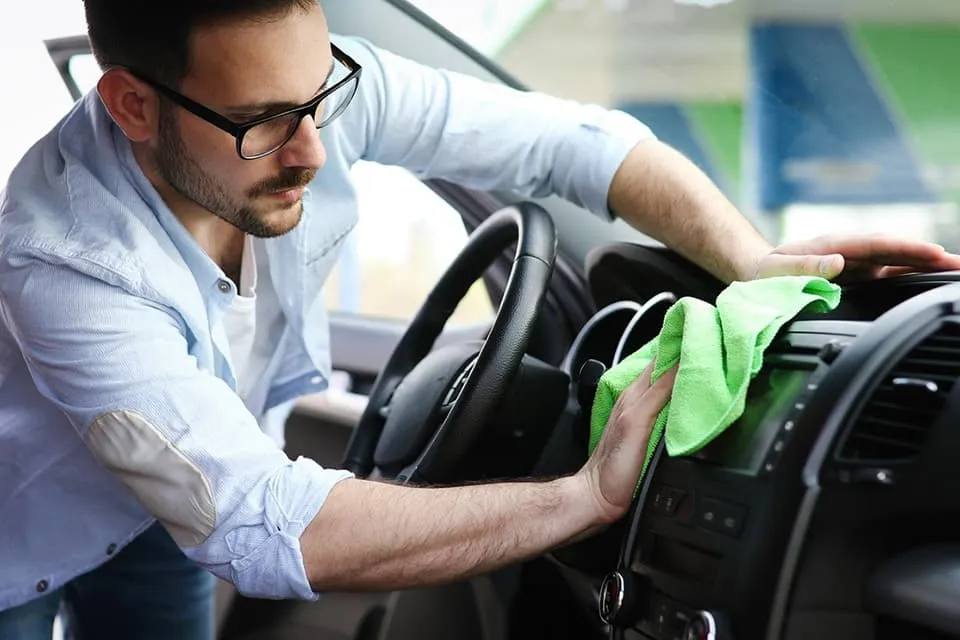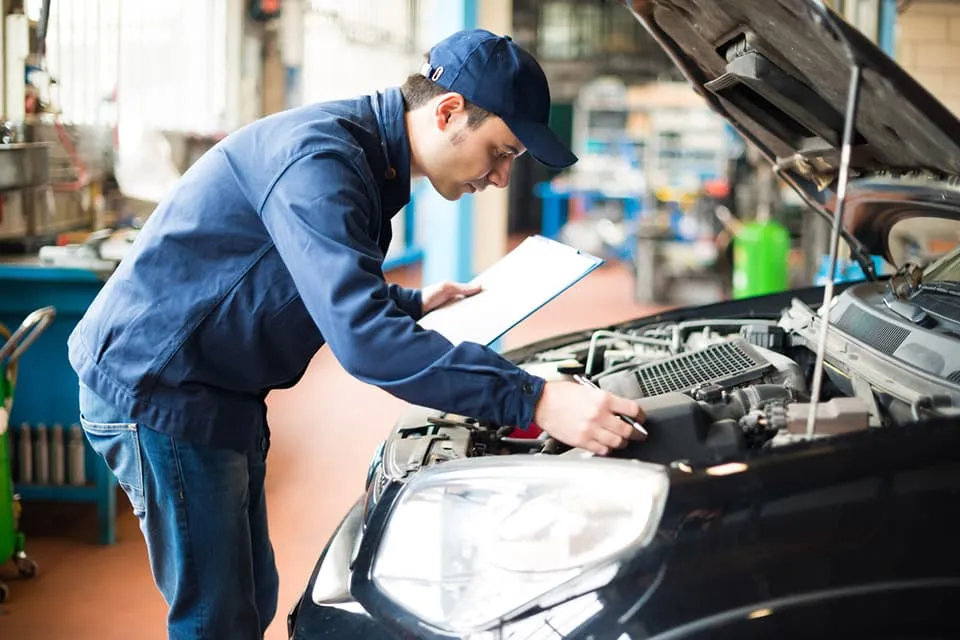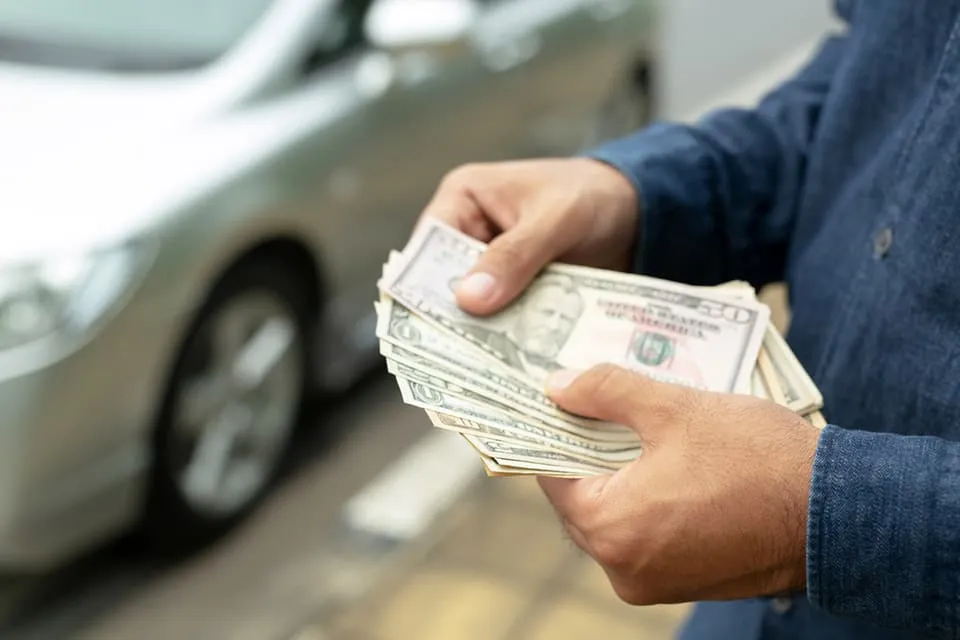How to Sell Your Car
to Maximize Price and Minimize Headache

Selling a car can be stressful, and with so many different aspects to take care of, it's easy to make a mistake that could cost you hundreds or thousands of dollars. You want to get the most out of your car sale for the least trouble possible; fortunately, the way to do this is relatively simple. Let's start by discussing the steps you'll need to take to sell your car to maximize your investment return.
How Do You Sell a Car?
Step #1: Decide How to Sell a Car: Dealership vs. Private Sale
Finding the best way to sell a car means looking at all your available options, including dealership trade-ins and private sales. A dealership trade-in, while not a "sale", can be the best option if you intend to get another vehicle. A dealership will assess the condition of your car and make you an offer. Your offer reduces the price of another car or the lease or loan payments. You can calculate these lease or loan payments ahead of time using an online calculating tool, like the one available for free from GoodCar.
If you choose a private sale, you will get far more control over the final outcome of the transaction. You can also get cash for the vehicle instead of a trade-in credit, which can be useful if you don't intend to purchase another car. A private sale will also give you more room for negotiations; with a trade-in, the dealership will usually decide the value they are willing to give.
Step #2: Get All The Necessary Documents Together
There are several documents you'll need to legally transfer ownership of your vehicle to another person, as well as paperwork that a buyer may request. These include:
- Maintenance Records: For a private sale, a potential buyer may ask to see documents proving that the vehicle has undergone regular upkeep and servicing. This means showing proof of mechanic visits, oil changes, tire rotations, and anything else that constitutes proper maintenance.
- Vehicle Title: For the car to legally change hands, you'll need to have the vehicle's title. This title will give the buyer valuable information about the car, and the DMV will need it to be signed so they can update their records.
- Sales Paperwork: When you sell a car to a dealership, you get tons of paperwork. Keep that because for selling your vehicle, you should have the original bill of sale or any dealership documents related to your vehicle purchase. The more transparency you can offer the buyer or dealership, the better the process typically goes.
- Vehicle History Report: A savvy buyer usually asks for a vehicle history report. These reports let them see whether the car has been involved in any accidents, how many owners it has had, and other details that can drastically affect the car's actual value.
Step #3: Make Sure Your Vehicle is in the Best Condition Possible

Learning how to sell a car fast may seem like a great way to get cash in your pocket, but taking your time is important. You'll want to prepare your vehicle as well as you can before showing it to buyers; every repair you make, no matter how small, can significantly affect the price you'll get.
To get your vehicle looking its best, you'll want to:
- Clean and detail the interior of the car
- Remove any personal items you may have. This includes clearing out the center console, dash storage, under your seats, and in the side pockets of the doors.
- Make sure that any regular maintenance is up-to-date. For example, if the car needs an oil change, complete that before beginning the selling process.
- Complete any non-major repairs that you can reasonably afford. This means fixing broken tail lights, buffing out scratches, fixing cracks in the windshield, and replacing any broken buttons on the entertainment system.
- Make sure that your tires are at the proper pressure.
- Check your brakes and make sure the pads aren't too worn down. If they are, consider replacing them before selling the vehicle.
- Check the tread on your tires; if they are below a certain depth, consider getting a new set before trying to sell.
Step #4: Set Your Price and List Your Car

It may be tempting to set an exorbitantly high price, knowing that you will likely have to negotiate down a bit in a private sale. This isn't usually the best plan; too high of a price will turn off many buyers, leading them to look elsewhere for a better deal. Instead, try to get as close to the actual value of your vehicle as possible.
To start this process, you'll want to get your vehicle inspected by a mechanic. They can give you an idea of the condition of your car, so you have a point of reference when looking at other listings. Then, look at other vehicles of the same make, model, and year in that condition and see what prices those have listed. Once you've found a reasonable price range to set your number within, choose a listing service and put your car up for sale. This can be through local classifieds, online marketplaces, or advertising on social media.
Step #5: Compare Offers and Finalize Sale
Once you get a couple of offers, choose the highest and set up meetings. Make sure to meet in a public, well-lit place during the day. Inform someone you trust that you are meeting a buyer, then go to the meeting place. You may need to negotiate a bit, but once the final price is set, you can begin to finalize the sale.
Finalizing the sale means transferring over the title and having the buyer go to your local DMV. They will need to retitle the vehicle, register it in their name, and pay any associated fees. You'll also need to ensure that payment is complete before giving over your title. You may use an online payment service, bank transfer, cash, or cashier's check; don't accept a regular check, as these can bounce.
3 Tips for Selling a Car for Maximum Profit

- Mention the Sale in Your Social Groups: If you attend church, a book club, an intramural sports league, or any other social group, mention that you are looking to sell your car. You may be able to get a better price, as people are more willing to purchase a vehicle from someone they know and will likely not negotiate as rigorously.
- Make Sure to Have an Air Freshener in the Car: It may seem small, but the sense of smell is a huge factor in selling a vehicle. If the car has a good scent, a person is more likely to want to purchase it. Dealerships often use this tactic, putting "new car smell" fresheners in used vehicles to help woo customers to buy.
- Be Honest About the Car's History: Lying about a vehicle to artificially increase the price can cost you later. You can be sued for false advertising by the buyer and end up paying back all of the sales price. That's why it's essential to get a vehicle history report, so you can show a buyer all of the details they'll need to confirm a car's actual condition.
FREE Vehicle Search
- Accidents
- Problem Checks
- Title Records
- Recalls
- Values
- Specs
-
InfoPay, Inc. (dba GoodCar) is an Approved NMVTIS Data Provider
-
-

















